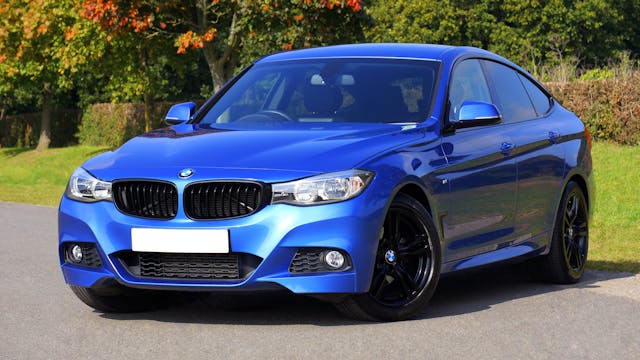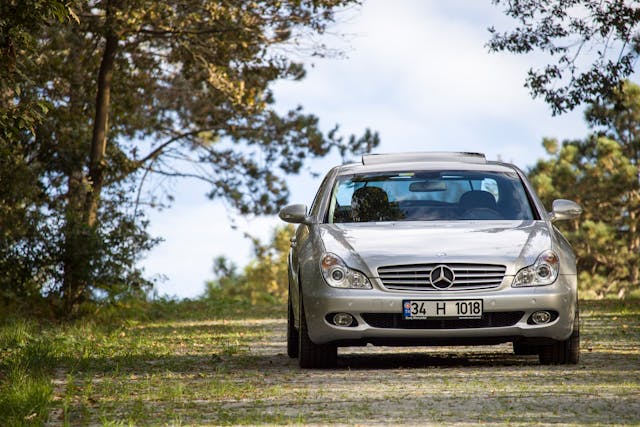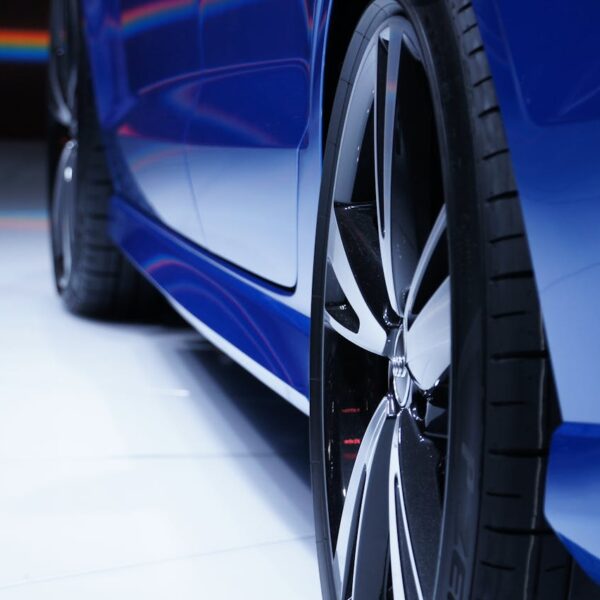Non Standard Auto Insurance Companies: What You Need to Know
Non-standard auto insurance companies are a growing trend in the insurance industry. These companies cater to drivers who have difficulty obtaining coverage through traditional insurance providers. Non-standard auto insurance companies offer policies to drivers who have a poor driving record, no prior insurance, or who require high-risk coverage.
These companies may offer policies with higher premiums or lower coverage limits than traditional insurance providers. However, they provide an option for those who may not have access to traditional insurance coverage. Non-standard auto insurance companies may also offer unique coverage options, such as customized policies for classic cars or high-performance vehicles.
While non-standard auto insurance companies may not be as well-known as traditional providers, they serve an important role in the insurance industry. As more drivers require specialized coverage, non-standard auto insurance companies will continue to grow and provide options for those who need them.

Understanding Non-Standard Auto Insurance
Defining Non-Standard Auto Insurance
Non-standard auto insurance is a type of insurance coverage that is designed for high-risk drivers who are unable to obtain coverage through standard auto insurance policies. High-risk drivers are individuals who are more likely to get into accidents or file claims, such as drivers with a poor driving record, DUI convictions, or a history of accidents. Non-standard auto insurance companies specialize in providing coverage to these high-risk drivers.
Difference Between Standard and Non-Standard Insurance
Standard auto insurance policies are designed for low-risk drivers who have a clean driving record and are less likely to file claims. These policies offer lower premiums and higher coverage limits. Non-standard auto insurance policies, on the other hand, are designed for high-risk drivers and offer higher premiums and lower coverage limits. They may also have additional restrictions, such as higher deductibles, limited coverage for certain types of accidents, or exclusion of certain drivers.
Non-standard auto insurance companies use different criteria to determine the level of risk associated with a driver. They may consider factors such as age, driving history, type of vehicle, and location. These companies also offer customized coverage options, such as liability-only coverage or full coverage with additional benefits.
It is important to note that non-standard auto insurance policies may not provide the same level of coverage as standard policies. Drivers who are considered high-risk may be required to pay higher premiums and may have limited coverage options. However, non-standard auto insurance can provide a viable option for drivers who are unable to obtain coverage through standard policies.
Overall, non-standard auto insurance companies provide a valuable service to high-risk drivers who may otherwise be unable to obtain coverage. While the premiums may be higher and the coverage may be more limited, non-standard auto insurance can provide peace of mind and financial protection in the event of an accident.
Eligibility and Risk Assessment
When it comes to non-standard auto insurance companies, eligibility and risk assessment are two important factors that determine whether a driver can get coverage. These companies typically specialize in providing insurance to high-risk drivers who may have difficulty obtaining coverage from traditional insurance companies.
Factors Influencing Risk Evaluation
Non-standard auto insurance companies use various factors to evaluate the risk associated with insuring a driver. These factors include driving record, credit score, claims history, and traffic violations. Drivers with a poor driving record or a history of traffic violations are considered high-risk and may face higher premiums.
Credit score is another important factor that non-standard auto insurance companies use to determine risk. Drivers with poor credit scores may be considered a higher risk because they are more likely to file claims. However, some non-standard auto insurance companies do not use credit score as a factor in determining eligibility.
High-Risk Driver Profile
Drivers who are considered high-risk may have difficulty obtaining coverage from traditional insurance companies. These drivers typically have a history of traffic violations, accidents, or DUI convictions. They may also have a poor credit score or a history of filing insurance claims.
Non-standard auto insurance companies specialize in providing coverage to high-risk drivers. They offer policies that are tailored to the specific needs of these drivers, including higher liability limits and coverage for non-standard vehicles.
In conclusion, non-standard auto insurance companies evaluate risk based on various factors, including driving record, credit score, claims history, and traffic violations. High-risk drivers may face higher premiums but can still obtain coverage through non-standard auto insurance companies.

Coverage and Policy Options
Types of Coverage Available
Non-standard auto insurance companies offer a range of coverage options to meet the needs of drivers who may have difficulty obtaining coverage from traditional insurers. These options may include liability coverage, comprehensive coverage, collision coverage, and medical payments coverage.
Liability coverage is required by law in most states and covers damages and injuries that you may cause to others in an accident. Comprehensive coverage provides protection for non-collision events such as theft, vandalism, and natural disasters. Collision coverage covers damages to your vehicle in the event of an accident, regardless of who is at fault. Medical payments coverage covers medical expenses for you and your passengers in the event of an accident.
Customizing Your Policy
Non-standard auto insurance companies also offer a variety of coverage options that can be customized to fit your individual needs. This may include full coverage, which combines liability, comprehensive, and collision coverage, as well as additional options such as roadside assistance and rental car reimbursement.
One important factor to consider when customizing your policy is the deductible, which is the amount you will be responsible for paying out of pocket before your insurance coverage kicks in. Higher deductibles typically result in lower monthly premiums, while lower deductibles may result in higher premiums.
For drivers who have had a history of traffic violations or accidents, non-standard auto insurance companies may also offer SR-22 coverage, which is a form of high-risk insurance required by some states. This coverage can help you meet your state’s requirements for financial responsibility and get back on the road.
Overall, non-standard auto insurance companies offer a range of coverage and policy options to meet the needs of drivers who may have difficulty obtaining coverage from traditional insurers. By customizing your policy to fit your individual needs, you can ensure that you have the protection you need on the road.
Costs and Premiums
Understanding Insurance Premiums
When it comes to non-standard auto insurance companies, premiums can be higher than those of standard insurance companies. The premiums are based on various factors, including the age, driving history, and type of vehicle of the policyholder. Insurance companies also consider the risks associated with insuring a non-standard driver.
Non-standard drivers are those who have a history of accidents, traffic violations, or those who are considered high-risk drivers. As a result, the premiums for these drivers are often higher than those of standard drivers.
Strategies to Lower Premiums
Despite the higher premiums, there are strategies that non-standard drivers can use to lower their insurance costs. One strategy is to increase the deductible. By increasing the deductible, the policyholder is taking on more risk, which can result in lower monthly premiums.
Another strategy is to take advantage of discounts. Many non-standard auto insurance companies offer discounts for things like good driving habits, multiple policies, or low mileage. Policyholders should ask their insurance company about available discounts and take advantage of them if possible.
Finally, policyholders can opt for monthly premiums instead of paying the entire premium upfront. While this may result in slightly higher costs over time, it can make the premium more affordable for those on a tight budget.
In conclusion, non-standard auto insurance companies often have higher premiums than standard insurance companies. However, by understanding insurance premiums and using strategies to lower costs, policyholders can still find affordable rates.

Choosing the Right Non-Standard Auto Insurance Company
When it comes to non-standard auto insurance, it’s important to find the right provider for your needs. With so many options available, it can be overwhelming to choose the right one. This section will provide some guidance on how to choose the right non-standard auto insurance company.
Comparing Non-Standard Insurance Providers
To choose the right non-standard auto insurance provider, it’s important to compare different options. Some of the most popular non-standard auto insurance companies include Dairyland, The General, GEICO, Progressive, Safe Auto, Infinity, GAINSCO, Bristol West, National General, Direct Auto Insurance, Kemper, Foremost, Founders Insurance, and Acceptance Auto Insurance.
When comparing providers, it’s important to consider factors such as coverage options, pricing, and customer service. It’s also important to read reviews and ratings from other customers to get a sense of the provider’s reputation.
The Role of Insurance Agents
Working with a licensed insurance agent can also be helpful when choosing a non-standard auto insurance provider. An insurance agent can help you compare different providers and find the best coverage options for your needs.
When working with an insurance agent, it’s important to ask questions and make sure you understand the coverage options and pricing. It’s also a good idea to shop around and get auto insurance quotes from multiple providers to ensure you’re getting the best deal.
Overall, choosing the right non-standard auto insurance provider requires some research and comparison. By considering factors such as coverage options, pricing, and customer service, and working with a licensed insurance agent, you can find the right provider for your needs.
Frequently Asked Questions
What differentiates non-standard auto insurance from standard auto insurance?
Non-standard auto insurance is designed for drivers who have a higher risk of accidents or violations, and therefore may not qualify for standard auto insurance. Non-standard policies typically have higher premiums and offer less coverage than standard policies.
Which companies are considered the top providers of non-standard auto insurance?
Some of the top providers of non-standard auto insurance include GEICO, Progressive, and State Farm. However, there are many smaller, regional companies that also specialize in non-standard policies.
How can I determine if a non-standard auto insurance policy is right for me?
If you have a history of accidents or violations, or if you have a low credit score, you may want to consider a non-standard auto insurance policy. However, it’s important to compare policies and rates from multiple providers to ensure you are getting the best coverage at the best price.
What are the typical criteria for being classified as a non-standard auto insurance customer?
The criteria for being classified as a non-standard auto insurance customer can vary by provider, but typically include factors such as a history of accidents or violations, a low credit score, or driving a high-risk vehicle.
Can non-standard auto insurance companies provide coverage for commercial vehicles?
Yes, many non-standard auto insurance companies offer coverage for commercial vehicles. However, the coverage and rates may differ from those for personal vehicles.
What factors contribute to the market share of non-standard auto insurance providers?
The market share of non-standard auto insurance providers is influenced by factors such as pricing, customer service, advertising, and the availability of coverage in different regions. Additionally, the number of drivers who are classified as non-standard can also impact the market share of these providers.




